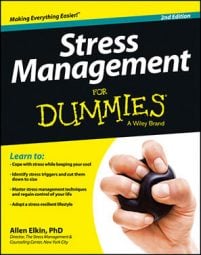Your business travel may be more than getting to and from work, and travelling for business can be plenty stressful. You may spend a lot of time on trains or planes. To many, the idea of travel may seem glamorous. Flying to Paris, Rome, or even Cleveland for work may sound like an adventurous outing, an escape from the stress of the office.
But be careful what you wish for. Yes, a little travel can be a welcome change of pace. But travelling a lot is stressful. Just ask anyone who spends many hours in the air each month. A study by the World Bank Group found that nearly 75 percent of respondents said their stress levels were high or very high because of their business travel.
Here are some traps to watch out for and some ideas to help you tame that road-warrior distress:
Bad eating habits. You can more easily control what and when you eat when you’re at home. Sitting in business class (if you can swing it) tempts you with all kinds of wonderful yet not terribly healthful goodies. It can be hard to say no.
A study by the Mailman School of Public Health at Columbia University found that those who travel more are more prone to obesity than those who travel less. And, as you know, when you’re overweight, you’re prone to a host of weight-related risks such as higher blood pressure, diabetes, and elevated cholesterol. The trick is to pre-think what you’re going to eat before you get into that tempting situation or pick up that restaurant menu.
Little exercise. Business travel can be pretty sedentary. Obviously sitting on the plane for hours is confining. Get up and walk around from time to time, do some static exercises, and stretch on the flight. Even when you get off the plane, you may have little time for physical activity.
Seasoned travelers have figured out how to build some exercise into their travel plans. These days you can find a health club, spa, or gym in every major hotel. Many hotels have exercise videos available. Even if you didn’t bring your sneakers, the hotel can often provide you with work-out clothes.
Poor sleep. While some travelers swear they sleep best in a hotel, many more find that the quality of their sleep is worse. One obvious culprit is jet lag that finds you tossing and turning at 4 a.m. Another is the late nights spent entertaining clients. It may also be getting used to a new bed.
A survey conducted by Westin Hotels and Resorts found that 55 percent of frequent business travelers experience sleep deprivation, and 22 percent experience some form of sleep disruption or insomnia. If you can arrive at your destination a day or two earlier, this will help your body adjust.
Try not to burn the candle at both ends. Get to bed as early as you can. Watch the alcohol and the caffeine. Some people swear that taking melatonin helps, but the jury is still out on its efficacy. Set your watch for the new time.
This will help you adjust psychologically to the change. Drink water both during and after the flight to avoid dehydration. Take a hot bath before you go to bed. Finally, sometimes earplugs and an eye mask can help reduce distractions.

